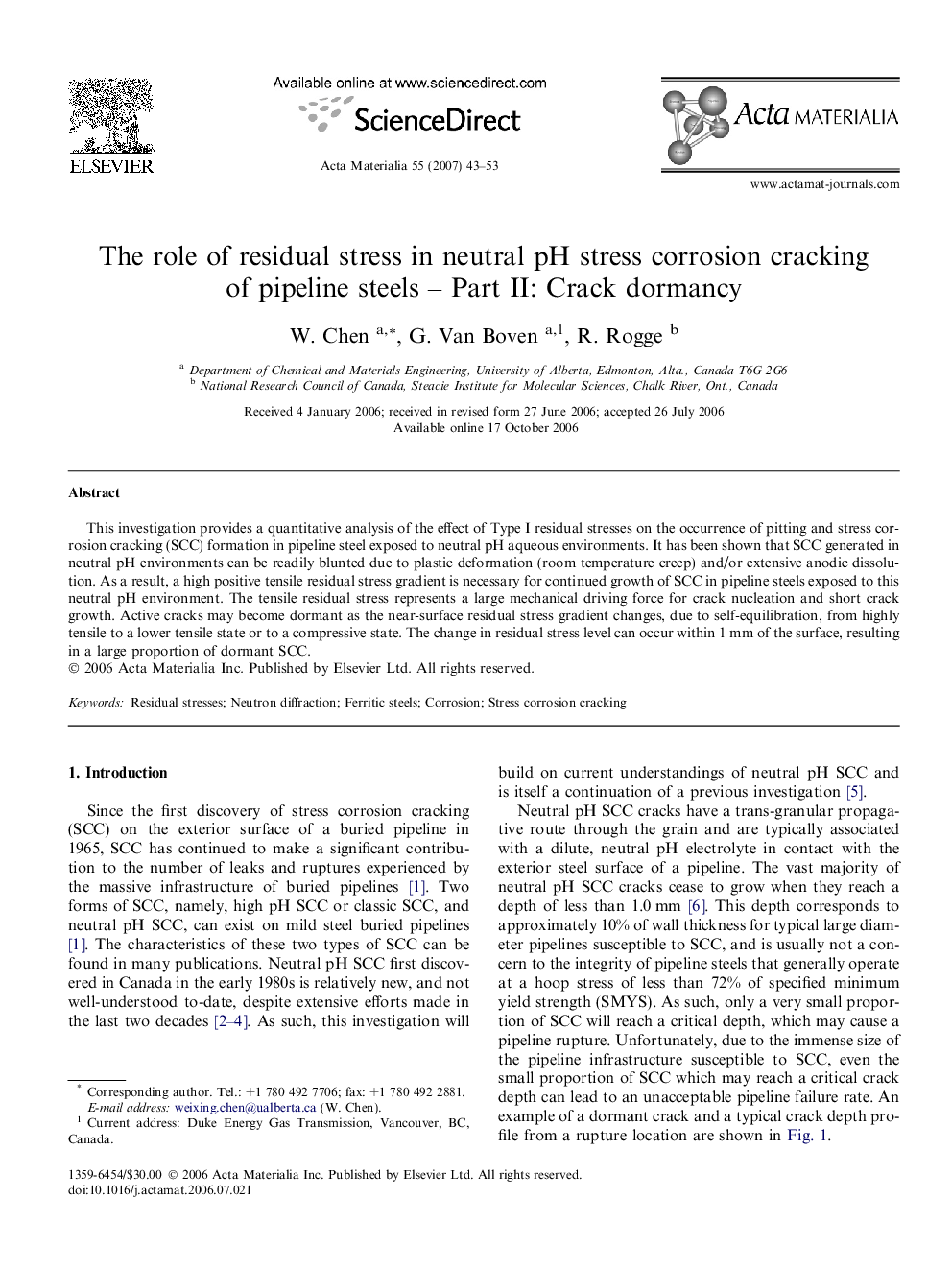| Article ID | Journal | Published Year | Pages | File Type |
|---|---|---|---|---|
| 1449888 | Acta Materialia | 2007 | 11 Pages |
This investigation provides a quantitative analysis of the effect of Type I residual stresses on the occurrence of pitting and stress corrosion cracking (SCC) formation in pipeline steel exposed to neutral pH aqueous environments. It has been shown that SCC generated in neutral pH environments can be readily blunted due to plastic deformation (room temperature creep) and/or extensive anodic dissolution. As a result, a high positive tensile residual stress gradient is necessary for continued growth of SCC in pipeline steels exposed to this neutral pH environment. The tensile residual stress represents a large mechanical driving force for crack nucleation and short crack growth. Active cracks may become dormant as the near-surface residual stress gradient changes, due to self-equilibration, from highly tensile to a lower tensile state or to a compressive state. The change in residual stress level can occur within 1 mm of the surface, resulting in a large proportion of dormant SCC.
